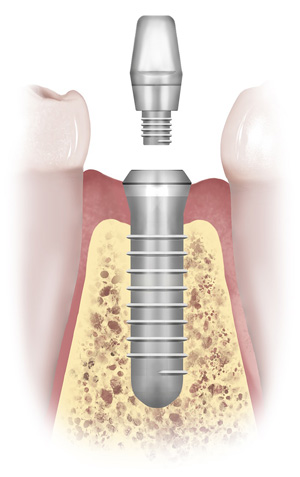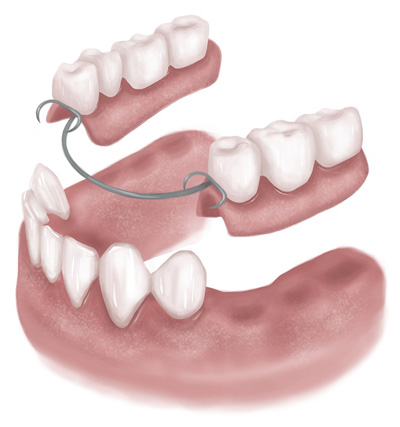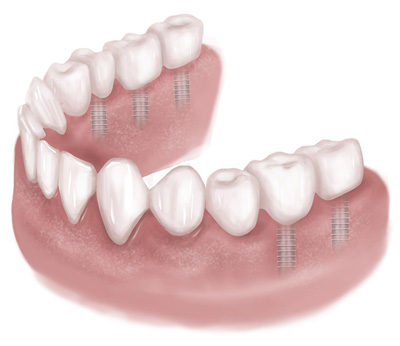The most common incidence of tooth loss is the posterior, or back of the mouth, usually due to decay, failed root canal treatment, or fracture. When more than one tooth is missing, there are three common treatment options: the traditional tooth supported bridge, a removable partial denture and an implant supported bridge. In this situation the benefits of implant-supported teeth are even more obvious.
Replacing Back Teeth

The most common incidence of tooth loss is the posterior, or back of the mouth, usually due to decay, failed root canal treatment, or fracture. When more than one tooth is missing, there are three common treatment options: the traditional tooth supported bridge, a removable partial denture and an implant supported bridge. In this situation the benefits of implant-supported teeth are even more obvious.
A removable prosthesis, such as a partial denture, actually accelerates the bone resorption (deterioration) process that occurs naturally when teeth are lost or removed. In addition, the clasps that hold the partial denture in place put significant pressure on the natural teeth they hook onto, loosening them and in many cases, eventually leading to the loss of those teeth. Most patients with partial dentures state that they are uncomfortable and that they do not function well.
The advantages of replacing missing posterior teeth with implant-supported bridges include the following:
- They look feel and function like natural teeth
- They are much more comfortable and stable than partial dentures
- Natural biting and chewing capacity is restored
- The bone is preserved therefore preventing the bone resorption (deterioration) process
- The integrity of the facial structures is maintained
- Adjacent natural teeth are not compromised (ground down into peg shapes or loosened)



